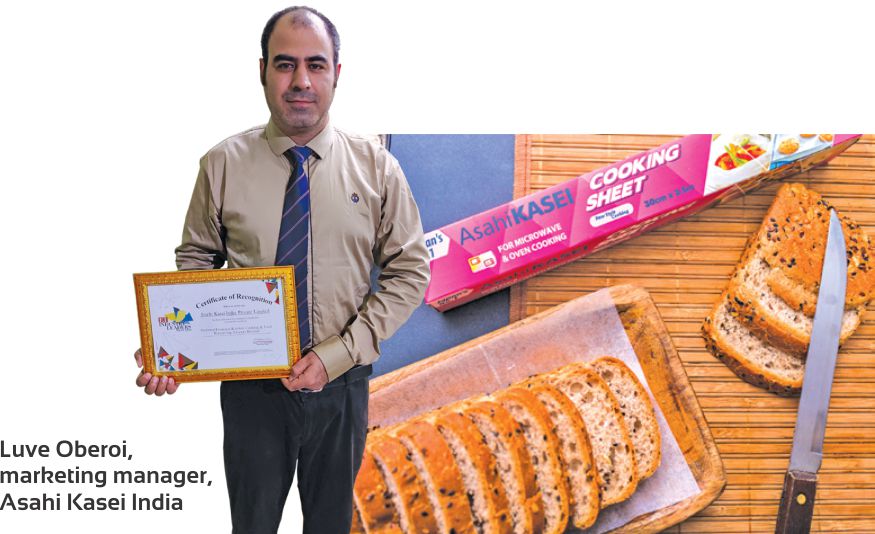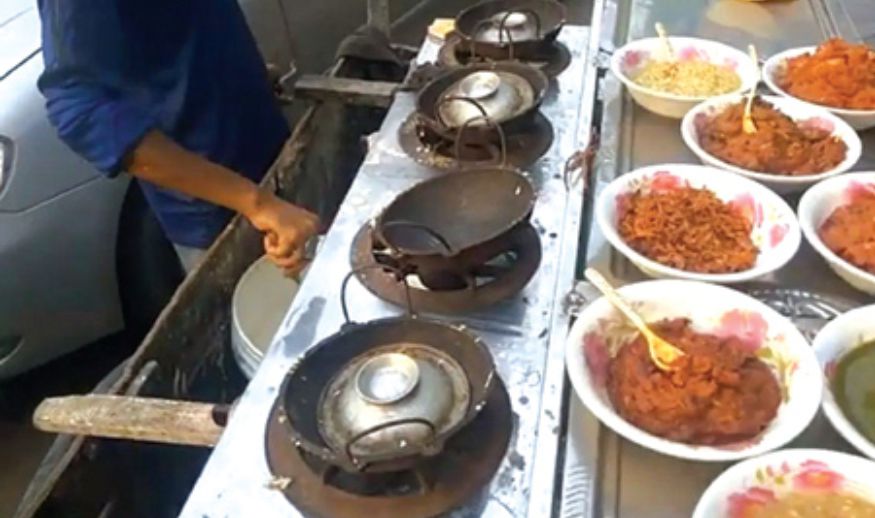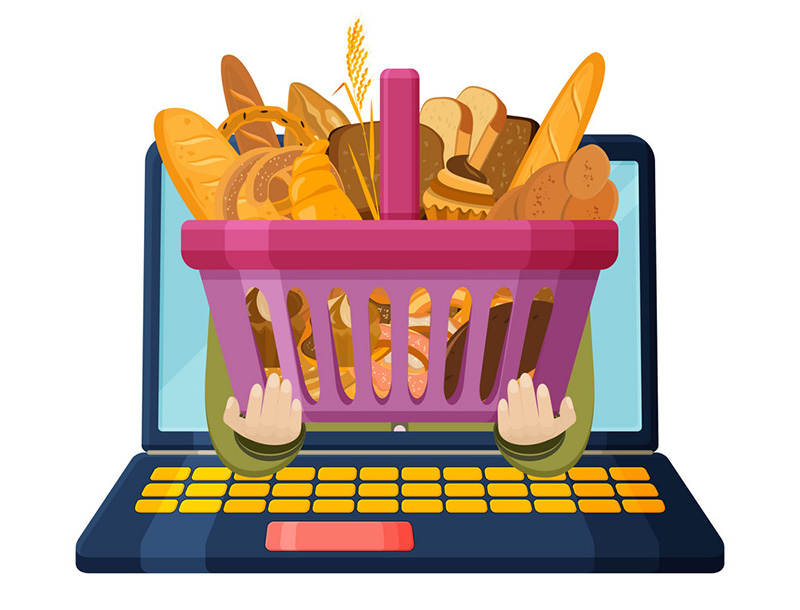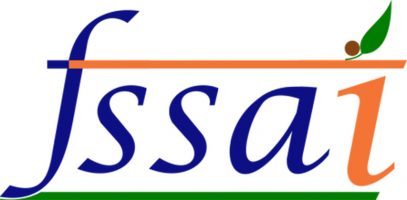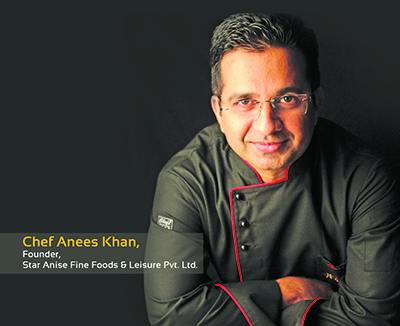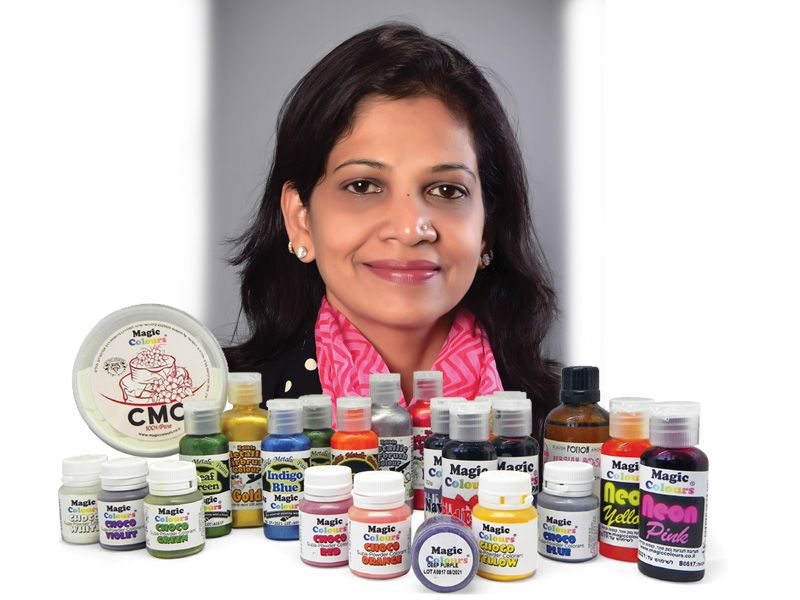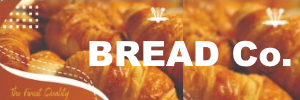GST DEMYSTIFIED
Both bakeries and home bakers can apply for Goods and Services Tax (GST), which is a new system of indirect tax levied on the supply of goods and services. It is a multi-stage, destination-based tax that is levied on every instance of value addition.
GST has replaced around 17 of the previously existing State and Central indirect taxes such as central excise duty, additional customs duty, VAT, entertainment tax and service tax. It came into effect from 1 July 2017.
If your bakery’s turnover exceeds Rs 20 lakh (Rs 10 lakh for North Eastern and hill states), you have to get registered under GST. Turnover is calculated on the basis of the combined sales of all your bakery outlets, if you have more than one. Businesses can register for GST and obtain GSTIN
free of cost.
Under the GST Law, tax will be levied at every point of sale. There are multiple change-of-hands a commodity goes through along its supply chain: from purchase of raw material to the final sale to the end consumer.
The stages are as follows:
• Purchase of raw materials
• Manufacture
• Warehousing of finished goods
• Sale of the product to the retailer
• Sale to the end consumer
GST will be levied on each of these stages, which makes it a multi-stage tax. GST is also destination-based. Consider goods manufactured in Rajasthan and are sold to the final consumer in Karnataka. Since GST is levied at the point of consumption, in this case Karnataka, the entire tax revenue will go to Karnataka.
There are three different components of GST: Central GST, State GST and Inter-state GST.
• CGST: Collected by the Central Government on an intrastate sale (Eg: Within Karnataka)
• SGST: Collected by the State Government on an intra-state sale (Eg: Within Karnataka)
• IGST: Collected by the Central Government for inter-state sale (Eg: Karnataka to Tamil Nadu)
Before GST, tax on tax was calculated and tax was paid by every purchaser including the final consumer. The taxation on tax is called the Cascading Effect of Taxes.
GST eliminates this cascading effect as tax is calculated only on the value added at each transfer of ownership.
How to Apply
Every person, other than a non-resident taxable person, must provide his Permanent Account Number (PAN), mobile number and e-mail address in Part A of FORM GST REG- 01.
The PAN shall be validated online via the Common Portal from the database maintained by the Central Board of Direct Taxes.
The mobile number is verified through a one-time password sent to the said mobile number. The e-mail address is verified through a separate one-time password sent to the said e-mail address.
On successful verification of the PAN, mobile number and e-mail address, an application reference number (ARN) are generated and sent to the mobile number and e-mail address provided.
Using the application reference number or ARN generated Part B of FORM GST REG-01 has to be submitted. It must be signed and documents specified in the Form must be submitted at the Common Portal either directly or through a Facilitation Centre, notified by the Board.
What Happens in Late Filing
A return is a document containing details of income which a taxpayer is required to file with the tax administrative authorities. This is used by tax authorities to calculate tax liability.
Return filing is mandatory under GST. If you are registered under GST, even if there is no transaction you must file a Nil return. The due dates of various types of GST returns are available on the government’s website.
You cannot file a return if you haven’t filed the previous month/quarter’s return. Hence, late filing of GST return will have a cascading effect leading to heavy fines and penalty. Delay in filing returns will affect your compliance rating and timely refunds.
Interest for late filing is 18 per cent per annum. It has to be calculated by the tax payer on the amount of outstanding tax to be paid. Time period will be from the next day of filing to the date of payment. Late fee is Rs 100 per day per Act. So it is 100 under CGST and 100 under SGST. Total will be Rs 200 per day. Maximum is Rs 5,000. There is no late fee on IGST.
Are you an offender?
When has anyone committed an offence under GST ? There are 21 offences under GST . For easy understanding, we have grouped them as:
Fake/wrong invoices
• A taxable person supplies any goods/services without any invoice or issues a false invoice.
• He issues any invoice or bill without supply of goods/services in violation of the provisions of GST
• He issues invoices using the identification number of another bonafide taxable person
Fraud
• He submits false information while registering under GST
• He submits fake financial records/documents or files fake returns to evade tax
• Does not provide information/gives false information during proceedings
Tax evasion
• He collects any GST but does not submit it to the government within 3 months
• Even if he collects any GST in contravention of provisions, he still has to deposit it to the government within 3 months. Failure to do so will be an offence under GST .
• He obtains refund of any CGST/SGST by fraud.
• He takes and/or utilizes input tax credit without actual receipt of goods and/or services
• He deliberately suppresses his sales to evade tax Supply/transport of goods
• He transports goods without proper documents
• Supplies/transports goods which he knows will be confiscated
• Destroys/tampers goods which have been seized
Others
• He has not registered under GST although he is required to by law
• He does not deduct TDS or deducts lesser amount where applicable.
• He does not collect TCS or collects lesser amount where applicable.
• Being an Input Service Distributor, he takes or distributes input tax credit in violation of the rules
• He obstructs the proper officer during his duty (for example, he hinders the officer during the audit by tax authorities)
• He does not maintain all the books that he required to maintain by law
• He destroys any evidence
• He has opted for composition scheme even though he is not eligible.
(Written with inputs from ClearTax, a technology company which specialises in GST software.)
One nation, one tax & one rate too
By Joseph Lawrence
May days have passed days have passed since the implementation of Goods and Services Tax (GST )and yet there is so much confusion over different rates of taxation. The author of “Making People Pay,” former Additional Commissioner of Income Tax Sibichen K Mathew, says, “From time immemorial people hate taxes and tax collectors.”Thew governments, however, cannot run without collecting taxes.
The majority of the Indian population are law-abiding and honest tax payers. But the more complex the law is, the higher the tendency to avoid tax. Let us take an example. I go to a shop to purchase 100 paper plates. I demand a bill. The shopkeeper asks me whether I have GST number. I say no. Then he says he cannot give a bill. I am left with no option but to buy the paper plates without a bill.
Srinivasan, editor,The Hindu Business Line, says, “A village lady artisan was trying to sell Navratri dolls to a khadi village shop. Since she did not have a bill with GST number the shopkeeper refused to buy the dolls.” Imagine the plight of the village artisans without GST number. Similarly, when an old lady comes to a bank to collect her pension of Rs 1000,she gets only Rs 600 since she did not maintain minimum balance. When a law is made without considering the consequences, people are bound to suffer. Did the GST Council foresee such scenario?
When you impose a law, you should calculate the cost of implementation.
Now we have so many layers in the GST system:
• No tax for maida without brand.
• Five per cent tax on maida with brand.(If your brand is registered, you have to run around to de-register your brand!)
• No tax on bread
• 18 per cent tax on cakes (sin tax)
• 28 per cent tax on chocolates (sin tax)
• 12 per cent taxon fast foods (puff pastry is a fast food or a bakery product?)
• 12 per cent service tax on AC restaurants (tax for keeping the dust and flies out.)
• 5 per cent on non-AC restaurants (if your turnover is less than Rs 1 crore)

What will be the tax on bakeries who sell goods across the counter?
- 28 per cent tax on pizza with toppings
- 5 per cent tax on pizza bread
- 5 per cent on chikkies
- 5 per cent tax on namkeens (without brand)
- Namkeens with brand ?
When it comes to implementation, there will be more paper work, work load for officials and it will lead to inspector raj! Law must be simple and transparent without any room for litigation.
To make GST successful, what can be done? According to the FSSAI Act, any food prepared in marriage hall, hospital, hotels and bakeries and other food products come under one law. Then why there are so many taxes on different foods?
Avoid all layers. Avoid all exemptions. That should be the motto. Like Adhar, make it a point that everyone pays tax. Regarding all food products there must be one or two slabs of, say, five per cent and 10 per cent. Our country has a lot of potential for tourism. The hospitality industry has invested a lot in their hotels .If the taxes are lowered, we can have more tourists coming to our country. Why can’t we allow our own citizens to enjoy the fine food and the comforts of a five star hotel? Thailand is able to attract more tourists because of low taxes. In Germany, the export tax is refunded immediately to the tourists at the airports.
The associations of food industries are a divided lot. FHRAI , Tamilnadu Hotel Association, All India Bread Manufacturers Association, All India Biscuit Manufacturers Association, Society Of Indian Bakers, Tamilnadu Bakers Federation, Kerala Bakers Association, Flour Millers Association, Karnataka Wrapped Bread Manufacturers Association, Indian Bakers Federation, All India Millers Association, All India Food Processors Association, FICCI, CII ,India Chamber of Commerce and Industries, and the list goes on.
Only when all the food industries come under a single umbrella, we can find a unified solution to the GST problem. And the Government is also confused whom to invite for talks. We must aim at One Nation, One Tax, One Rate.
(The author is Mentor, JM Bakers Academy, Chennai)
Biggies Gain, Tiny Peers Struggle
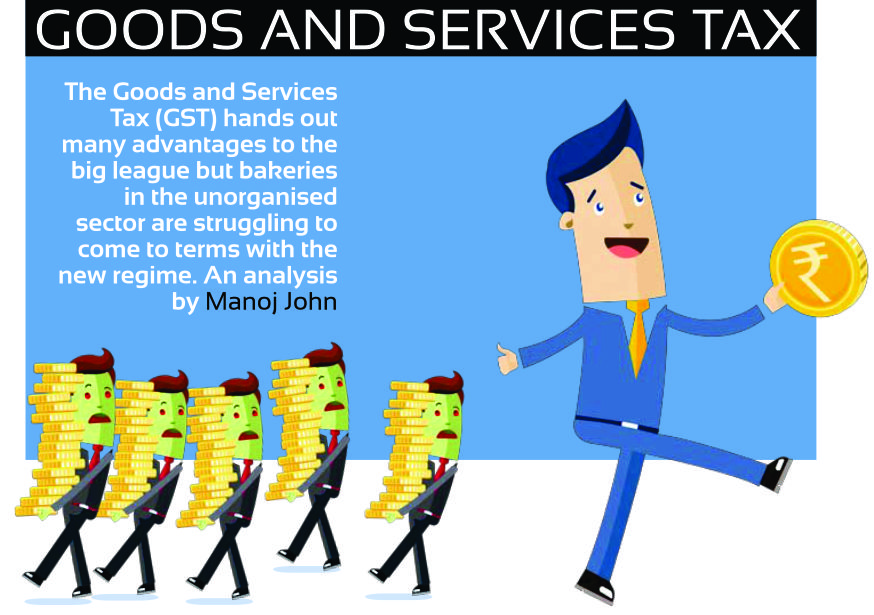
The biggest reform in tax laws in Independent India has caused so much disruption in the bakery industry so that businesses are yet to grasp its true ramifications. Even as the large bakery chains say the Goods and Services Tax (GST) will put order into the industry, smaller bakeries have begun to feel the pinch following the introduction of the unified tax since 1 July this year.
Costs of many products have risen by five to 10 per cent at small to medium bakeries, which has dampened their sales. Though the spirit behind unifying the tax system is simplification, many bakers believe it has complicated the matter for them.
“Accounting has become cumbersome for bakeries. The baker eventually produces only one single product—be it bread, cake or cookie. But he has to pay different taxes for various raw materials. This defies spirit of ‘one nation one tax’ motto,” said Joseph Lawrence, Mentor, JM Bakers Academy, adding that there should be “one nation one tax and one rate too.”
Despite hitches, bakers agree that GST is a progressive move in general for the country. “GST is good for the industry in general. Earlier the combined tax, including VAT and service tax, to be borne by the customer was 20.5 per cent. This has now come down to 18 per cent. This is a positive change. Our purchase cost also has come down. For some products, the total tax implication was up to 38 per cent. Now, the maximum rate is fixed at 28 per cent. This is a big solace. Still I feel there should be a flat rate of 12 – 14 per cent rather than the present system of four different slabs,” said Gaurav Wadhwa, owner, Theos. Bakers flay the differential rates of GST rather than the GST itself. Flour, for instance, is exempt from tax but branded flour is levied a tax of five per cent. Service tax for restaurants is 12 per cent but if any part of the restaurant, including the kitchen, is air-conditioned, the same goes up to 18 per cent.
“The GST Act and Rules are very clear. We have been approaching GST from a theoretical perspective for so long. From July 1 onwards, a number of practical issues have propped up. Now we need to learn from the bakeries what specific problems they are facing. Only then we can analyse them and find possible solutions,” said Pramod Surte, GST consultant who advises the hospitality industry.
Bearing the brunt
Chocolate, khari, pizza base, branded maida, biscuit and several other products are at the receiving end in the wake of the new tax regime. The biggest victim is chocolate, which now attracts a tax of 18 per cent.
“GST has turned chocolate into a premium product. The 18 per cent tax on chocolate has come as a blow to us. A major chunk of our chocolate customers are students. They cannot afford such huge amount. Chocolate sales of most bakeries have come down,” said Virender Arora, owner, Master Baker & Fast Food Centre. The chocolate market is growing at around 15 per cent per annum.
“A few problem areas need to be taken care of by the authorities. One of them is related to chocolate. Take for example combo products for gifting. Even if there is small piece of chocolate in a mixed bag, it goes into a higher slab of tax rate,” said Gaurav Wadhwa, owner, Theos, a chain of five outlets in Northern India. Wadhwa is planning to expand his business into other cities. Khari is another product that has become a bone of contention with the advent of GST. The classification of khari, a major sales puller at bakeries, is contentious.
“The tax rates for products need to be reworked. Our main grievance is related to the rate for khari. At present, we are consulting taxation experts. We are planning to approach the authorities for justice,” Prasad Dhargalkar, owner, Prasad Baking Corporation.
The classification of pizza base is also ambiguous. If pizza base is put under bread section, there is zero tax. If the base is considered a raw material for finished pizza, the tax rate is five per cent.
Tax on biscuits is another contentious issue. Even as essential items such as bread and milk are exempted from tax, biscuits are taxed 18 per cent. This comes at a time manufacturers were clamouring for exemption from tax as biscuit is a source of nutrients at cheap price for the rural poor.
“We expected that at least glucose biscuits will be were levied not more than five per cent tax. The move to charge all types of biscuits with 18 per cent tax is really a big blow to small bakeries,” said Sainath, who runs a bakery in Mumbai.
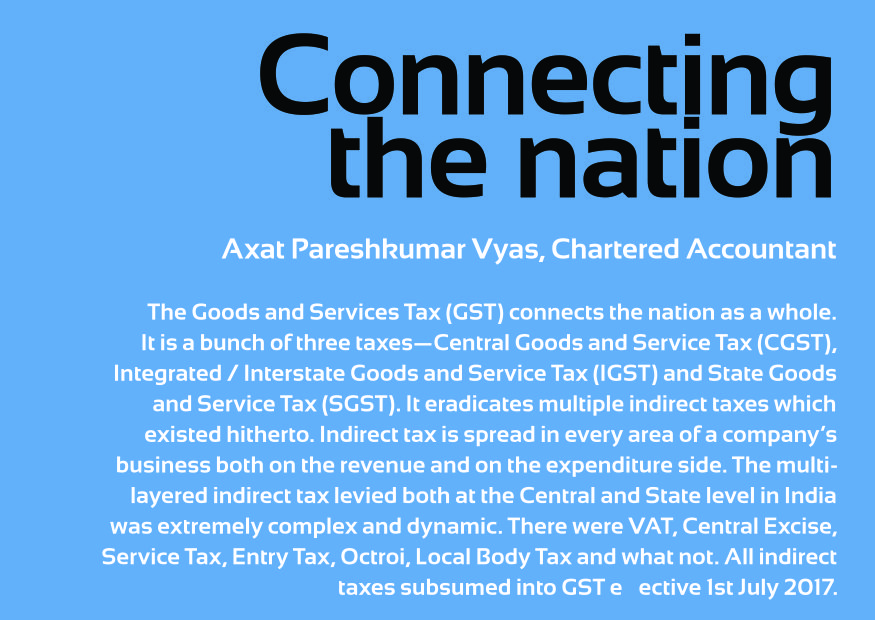
Big chains contented
The big bakery chains and multinational cafes are, at the same time, breathing a sigh of relief as tax has virtually come down for them. “GST is good for the industry. With this revolutionary tax regime in place, the industry will become organised. Now everybody is doing business only with invoices. This is beneficial for the manufacturers. The bakeries also get the advantage since they get input tax credit. They are also happy now,” said PV Shyam, sales head, DP Chocolates.
While big chains such as Monginis, Just Bake and Karachi Bakery do benefit from GST, the small neighbourhood bakeries may face troubles. Most of the small bakeries are in the unorganised sector where proper billing is an exemption rather than a rule.
“It is true that small bakeries in the unorganised sector,” says Shyam, whose customers include big bakery chains and ice cream companies.
In the previous regime of multiple taxes such as valueadded tax (VAT) and excise duty, the effective cumulative tax for many products amounted to as much as 40 per cent. Under GST, the highest tax slab is 28 per cent. As GST is a unified, destination based tax, there is no other tax on sale and purchase of consumable goods in the country now.
GST is levied at five per cent, 12 per cent, 18 per cent and 28 per cent on sale of goods and rendering of service. Import duty, over and above GST, is still applicable for ingredients brought in from foreign countries.
Most bakery items such as cakes, pastries and cookies are now charged 18 per cent GST as compared with 5 per cent VAT earlier. Bakeries have put up a unified face against some of the provisions of GST in a move to approach the authorities to seek remedy. The major hurdles under GST are classifications of some best-selling items such as khari, and the exorbitant tax on chocolate.
“Sales tax was a big burden for the bakery industry. In a different way, it continues even after the GST came into effect. If you eat in a restaurant, GST is 18 per cent. And the GST on take-away products at bakeries is also 18 per cent. Such anomalies must be eliminated. In my opinion, GST must be based on the turnover of an establishment,” said Virender Arora, owner, Master Baker & Fast Food Centre, Delhi.
Bread, along with other essential items, is exempted from GST. But bread-based products such as, say, brun maska, are served at the table, 12 per cent GST will be levied. This is going to take a toll especially on the Iranian restaurants, which are already fighting for survival, serving brun muska and khari biscuits among other typical Parsi items.
Curiously, non-essential bakery products carry 18 per cent tax at the takeaway counter and, if the same product is served to the customer at the table, will attract only 12 per cent tax, a saving of six per cent. Bakers see this as an anomaly since outlets with eating place are usually classified as cafés and not bakeries. “Bakeries that have facilities for immediate consumption of food face their own problems,” says Surte.
There are different tax rates for take-away products, depending on the HSN (Harmonised System Nomenclature) code. For dine-in, there is a flat GST of 18 per cent. It means that if someone buys a product from across the counter, the tax is 5 per cent, for instance, and if he eats the same product in a restaurant, the tax is 18 per cent.
The catch is the high tax on ingredients used for baking bread. Since bread is exempted from tax, bakers will not get the input tax credit on the raw materials. Improvers and yeast carry 18 per cent tax, which in turn result in an increase the price of bread. This effectively nullifies the exemption of bread from GST to some extent as the consumer ends up in paying a higher amount as price, if not as tax.
Another fiery area is the taxation system for fuel. Petroleum products are currently not brought under GST. Bakers use diesel and liquefied natural gas (LNG) as source of energy as electricity is costlier in the country. Bakeries will not get the benefit of input tax credit since petroleum products are still levied VAT. GST has also increased the work load for businesses. The staffers who handle accounting at bakeries are yet to grasp the full implications of this new taxation system. The previous tax regime was familiar to everyone. With GST, the paper work has actually increased many-fold. Most bakeries are still groping for the right accounting software that is compliant with GST,” said Arora.
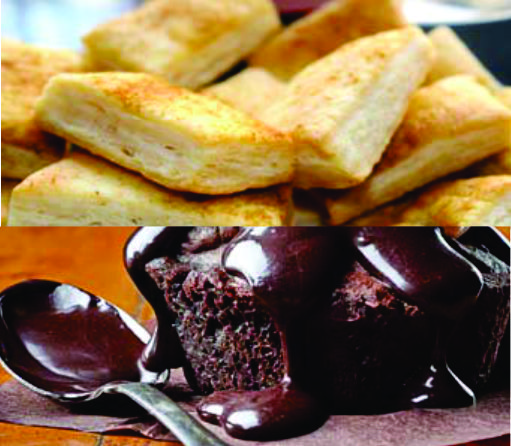
Move to seek remedy
The bakers are contemplating on approaching the Commissioner of Sales Tax, the appropriate authority for hearing grievances related to GST rates, for an advance ruling. “We will file an application before the Commissioner for advance relief. We are hopeful that the Commissioner will be proactive to addressing our concerns,” said a source.
The bakers are determined to go for judicial remedy if they do not get justice at the administrative level, it is reliably learnt. Gujarat State Bakers’ Federation has already moved the GST Council to address this issue. Faced with high tax on ingredients and no input tax credit, bakers will eventually be forced to hike prices more and more.
Goa bakers seek sop on GST
The All Goa Bakers and Confectioners Association urged the government to address the issue of declining number of traditional Goan bakers (poders) operating in Goa, by providing them with a subsidy on toddy, giving first preference in firewood auctions, and tax rebate on the Goods and Services Tax (GST) levied on allied bakery products.
“The association will submit a memorandum to the government and all 40 legislators regarding the problems we face in sustaining this centuriesold traditional profession,” Peter Fernandes, association president, said at a press briefing. “Bakers must also get first preference during the forest department’s auction of firewood,” he added.







